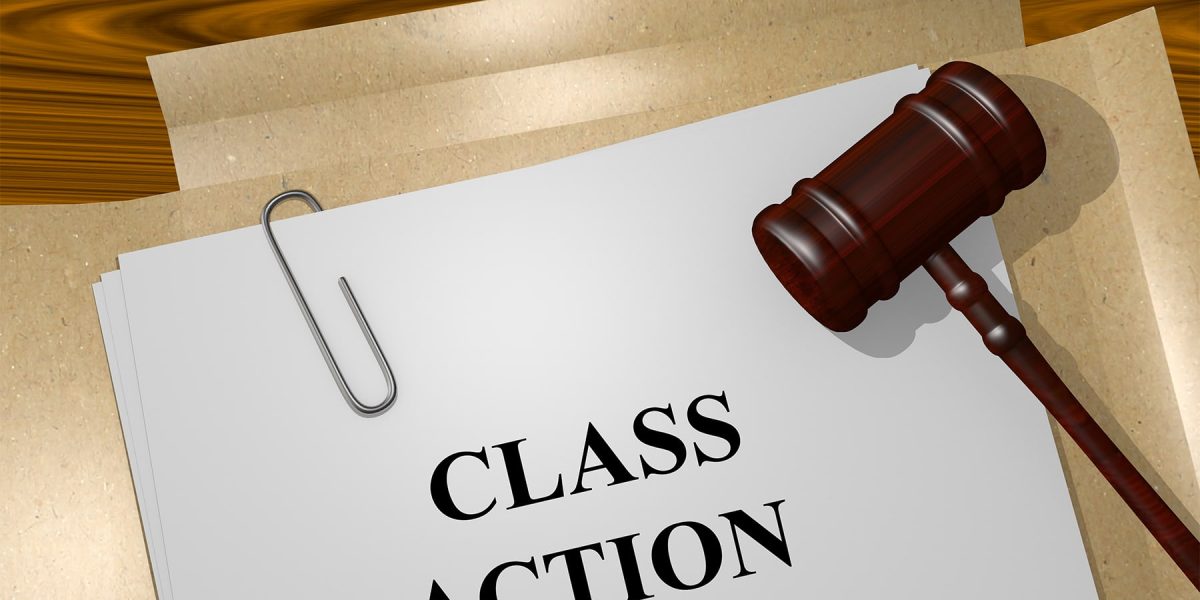The Archer-Daniels-Midland Class Action Lawsuit Unpacked: Stay Educated
Wiki Article
Debunking Course Action Lawsuits: A Closer Take A Look At Lawful Proceedings
Class activity claims can be complex and intimidating, frequently shrouded in a veil of enigma for those not familiar with the legal proceedings entailed. Obtaining a much deeper understanding of these lawsuits is critical, as they serve as a powerful device for individuals to look for justice and hold corporations answerable. In this conversation, we will debunk course action legal actions, taking a better consider the different facets of the legal process. From understanding the requirements for course action qualification to the role of class reps, and from the process of course qualification to the resolution of these suits, we will certainly untangle the complexities and clarified the inner functions of this lawful mechanism. Let's dive into the globe of class action legal actions and discover the ins and outs that exist beneath the surface.Recognizing Class Action Legal Actions
Understanding Class Action Lawsuits calls for an extensive evaluation of the legal procedures associated with cumulative litigation. Course action lawsuits are a type of lawsuit where a group of individuals with similar insurance claims or grievances sign up with together to start a suit versus a typical defendant. This type of lawsuits permits people with limited resources to collectively seek justice, as it incorporates the toughness of numerous specific insurance claims into a single lawsuit.The procedure starts with the identification of a lead plaintiff or course rep that submits the initial issue in behalf of the entire course. The court then figures out whether the case satisfies the demands for class accreditation, that include commonality, numerosity, typicality, and adequacy of depiction. If certified, the court notifies prospective course members, giving them an opportunity to opt-out if they wish to pursue their cases individually.
As soon as the course is licensed, the lawsuits continues through various phases, including discovery, activity method, and, if needed, trial. The outcome of the suit can result in a settlement or a judgment, which is binding on all class participants unless they pick to opt-out. Course action lawsuits can encompass a variety of legal issues, such as customer defense, securities fraud, work discrimination, and ecological injury.
Recognizing the subtleties of class action claims is crucial for both plaintiffs and defendants associated with cumulative litigation. It calls for an extensive understanding of the lawful requirements for certification, the rights and commitments of class members, and the potential advantages and risks linked with protecting or pursuing versus course activity cases.
Identifying Class Activity Eligibility
To determine whether a legal action qualifies as a class action lawsuit, certain criteria need to be met. These requirements are developed to make certain that the case can sufficiently stand for the passions of a huge team of individuals that have actually suffered comparable damage or have actually been influenced by the very same problem. The key aspect in identifying course activity qualification is the existence of an usual concern or concern that influences all possible course members.To start with, a class action suit needs numerosity, which means there have to be a significant number of possible class members involved. This makes sure that a course action is an efficient means to deal with the claims of a huge team of people, as opposed to having each person file a private claim.
Secondly, there need to be commonness amongst the claims of the potential class participants. This implies that there have to be a typical inquiry of law or reality that is main to the instance. A class activity might not be appropriate. if each potential course participant's case is one-of-a-kind and unrelated to the others.

The Function of Class Rep
Course agents play a vital duty in class action claims by standing for the passions of the whole course. These individuals are selected from within the course to function as the general public face of the lawsuit and are responsible for making decisions in behalf of all course members. The role of course representatives entails different duties and tasks throughout the legal process.
Among the main responsibilities of course reps is to supply details and support to their fellow class participants. They work as a point of contact and interaction between the course members and the attorneys representing them. This includes maintaining the class members notified around crucial updates, answering their inquiries, and attending to any kind of problems they may have.
Class agents additionally have the task to actively join the litigation process (Assertio class action lawsuit). This entails working closely with the attorneys to develop legal techniques, collecting evidence, and supplying testimony if essential. They need to be actively associated with all facets of the instance to make sure that the finest rate of interests of the entire course are represented
Furthermore, class reps are responsible for authorizing settlements or other resolutions gotten to in the claim. They should thoroughly evaluate the regards to the negotiation and decide that is in the very best interest of the entire class. This decision-making procedure needs mindful pop over to this site consideration and examination with click for more info the course participants.
The Process of Course Accreditation
The process of licensing a course in a course action lawsuit includes an extensive analysis of details standards to establish if the instance fulfills the essential requirements for class accreditation. Class accreditation is an essential step in the lawsuits procedure as it determines whether a suit can proceed as a class action, enabling a big team of people with comparable insurance claims to be represented collectively by one or a couple of people.To acquire class accreditation, the plaintiff should demonstrate that the proposed course satisfies particular requirements. Typicality calls for that the insurance claims or defenses of the class representatives are common of those of the class. Competence of depiction makes sure that the class representatives will fairly and adequately protect the passions of the course.
If the recommended class satisfies the necessary needs,The court will certainly inspect these requirements and the complainant's proof to figure out. The court may also consider various other aspects, such as whether a course action is the superior approach to settle the conflict and whether the class is adequately cohesive.

As soon as the court gives course qualification, the claim can continue as a class action, allowing the complainants to jointly seek relief and potentially receive a judgment or negotiation that profits the entire class.
Handling Course Activity Lawsuits
Once class qualification has actually been provided, the next step in settling a course action claim is to browse the procedure of lawsuits or negotiation negotiations. Litigation refers to the legal procedures in court, where the complainant's lawyer offers proof and debates to support their claims, and the accused's attorney counters with their own evidence and disagreements. This click over here procedure can entail numerous phases, such as pretrial activities, exploration, and test.On the other hand, settlement negotiations involve discussions between the celebrations to reach a mutually acceptable resolution without going to trial. BioVie class action lawsuit. Negotiation uses may be made at any type of stage of the litigation process, and if both celebrations agree, a settlement contract is reached. This agreement generally describes the conditions of the settlement, including any financial settlement, injunctive relief, or other remedies. When the negotiation is wrapped up, it is presented to the court for authorization.
Final Thought
Finally, course action lawsuits play an essential duty in supplying justice and compensation to large groups of people who have actually been harmed by the very same entity. By certifying a course and selecting class reps, the legal process comes to be a lot more obtainable and effective for the plaintiffs. Resolving these claims can be a complex and extensive process, however it is essential in holding firms responsible for their activities and making sure fair end results for all impacted events.From comprehending the standards for class activity qualification to the function of course agents, and from the procedure of class accreditation to the resolution of these lawsuits, we will certainly unravel the ins and outs and lost light on the inner operations of this legal system. The essential element in recognizing course action eligibility is the presence of a common inquiry or issue that impacts all possible course members.
If each prospective course participant's claim is special and unconnected to the others, a course activity may not be suitable.
Class agents play an essential function in course activity legal actions by representing the interests of the entire class.As soon as course qualification has actually been granted, the next step in fixing a course activity legal action is to browse the process of litigation or settlement negotiations.
Report this wiki page